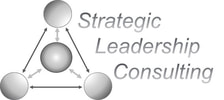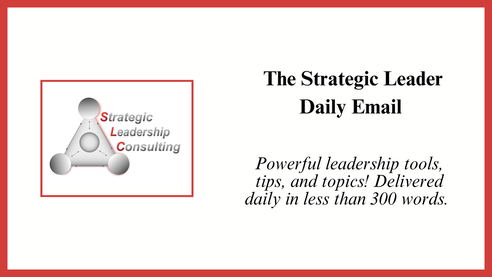|
Colleagues,
Today we complete the series on the twenty most important things I have learned from others. I control my attitude Thirty years ago this would have been my number one. For the past ten years it hasn’t even been on my list. Now it’s back. Why? Let’s be honest, the last two years have been a train wreck. With a pandemic, war, angry politics, a drug epidemic, climate change, etc… it doesn’t look like it is going to get any easier. For the past months (3, 6, 12, 24?) I have privately been wallowing in the pain and despair I see around me. But I don’t have to. I am not being pollyannish. The simple truth is that of 1000 people, 999 of them are good people. Flawed, lost, angry, in pain, but still, good people. I can choose to hold onto that and let it feed me. I can choose to embrace the fact that I control my attitude and that I can choose to be a lighthouse – a person who makes those 999 people feel and be better. And it is not pollyannish, because in serving others I will be happier too. This is the last of our series. If you think I missed something, email me here and share your piece of wisdom. I’ll be away from email for a while, but please feel free to respond to this series and I will get back to you after my return. Do good and be well, Frederick
0 Comments
Colleagues,
Today we continue the series on the twenty most important things I have learned from others. We don’t manage time, we manage priorities The concept of time management is a hoax designed to protect us from confronting the hard truths about how we allocate our time. Time management suggests that we can do everything if we just organize. Time management focuses on getting tasks done. It pretends to emphasize priorities, but it doesn’t. Tasks are not priorities. When we organize around priorities, as opposed to time, we increase our impact on people. We build, create value, and sow the seeds of future growth and success. If we aren’t helping people grow, then that tells us something about our priorities. Do the important things first. The rest will sort itself out. I’ll be away from email for a while, but please feel free to respond to this series and I will get back to you after my return. Do good and be well, Frederick Colleagues,
Today we continue the series on the twenty most important things I have learned from others. Juggling is better than being balanced I figured this one out on my own, but it took a long time. I used to want to be more balanced with my time. My life was always out of balance and usually work had the lion’s share. For years, I said “I need to have a more balanced life.” Then, by some strange alignment of the stars, I achieved a balanced life. Was it wonderful? No. I hated it. Being balanced means you are mediocre at everything. That might be okay for some people, but I can’t do it. Now. instead of balancing, I juggle. I focus on the one thing, put all of myself into it, and then I throw it into the air and move to the next thing. Each part of my life gets my undivided attention, but only for brief snippets. I can be good at everything I do by only doing one thing at a time. I’ll be away from email for a while, but please feel free to respond to this series and I will get back to you after my return. Do good and be well, Frederick Colleagues,
Today we continue the series on the twenty most important things I have learned from others. Seek to add value I’m not 100% convinced that this should be on this list, but it is where I am right now. You can decide whether or not it is where you want to be. As I have grown my business, I have realized that an essential approach is to create value for people. I have become somewhat obsessed with it. Whether it is a training, an email, a video, podcast, or a dinner with a friend, my goal is always to add value – to give something away that the person or people I’m with will leave richer and feeling better than before our interaction. This isn’t as hard as it seems. The simple act of being 100% present is often valuable enough. Asking good questions and listening to the answer also get the job done. My hesitancy is that there are times I need to take – I need someone to add value to me. I have a few people that I can count on for that (thank you Pam, Marcus, and Adrienne!), but I don’t know if I could consistently give to others without those few people who consistently give to me. Maybe there is another lesson there? I’ll be away from email for a while, but please feel free to respond to this series and I will get back to you after my return. Do good and be well, Frederick Colleagues,
Today we continue the series on the twenty most important things I have learned from others. If you don’t feel imposter syndrome, then you aren’t pushing your edge Imposter syndrome is that voice inside your head that is telling you that you can’t do it, that it’s not that good, that you are pretending. It is a terrible voice that seeks to undermine your confidence by convincing you that you don’t belong. Seth Godin flipped this feeling when he said that imposter syndrome just means that you are working at the edge of your abilities – that you are taking risks and pushing yourself to be great. This has been a game-changer for me. When my nasty little Fred voice begins whispering in my ear, “you can’t do that” I smile and welcome that voice because it means that I am pushing my edge, that I am growing, and that I am being fearless. I’ll be away from email for a while, but please feel free to respond to this series and I will get back to you after my return. Do good and be well, Frederick |
Categories
All
Archives
July 2024
|


 RSS Feed
RSS Feed